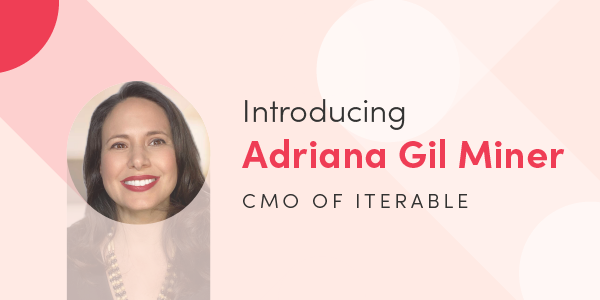Welcome to our AMA with Adriana Gil Miner!
They say the only constant of marketing is change, and as marketers, it's our job to embrace it! But while we can’t completely forecast the future, we can do our best to plan ahead and stay informed.
Today, we’re proud to bring Adriana Gil Miner (you can call her “Adri”), CMO of Iterable to the metaphoric mic to answer your questions and help future proof your plans for 2022.
With over 20+ years of executive marketing leadership/ leading and and scaling results driven marketing teams, Adri has the expertise and insights we need in our corner. She’s ready to take your questions.
How to Participate:
All you need to do is post your question in the comments section, and Adri will answer them as they come in! We'll be answering the questions submitted live first, and address the ones that were submitted in advance toward the end of our conversation.
Ready...set…Ask Adri Anything!


